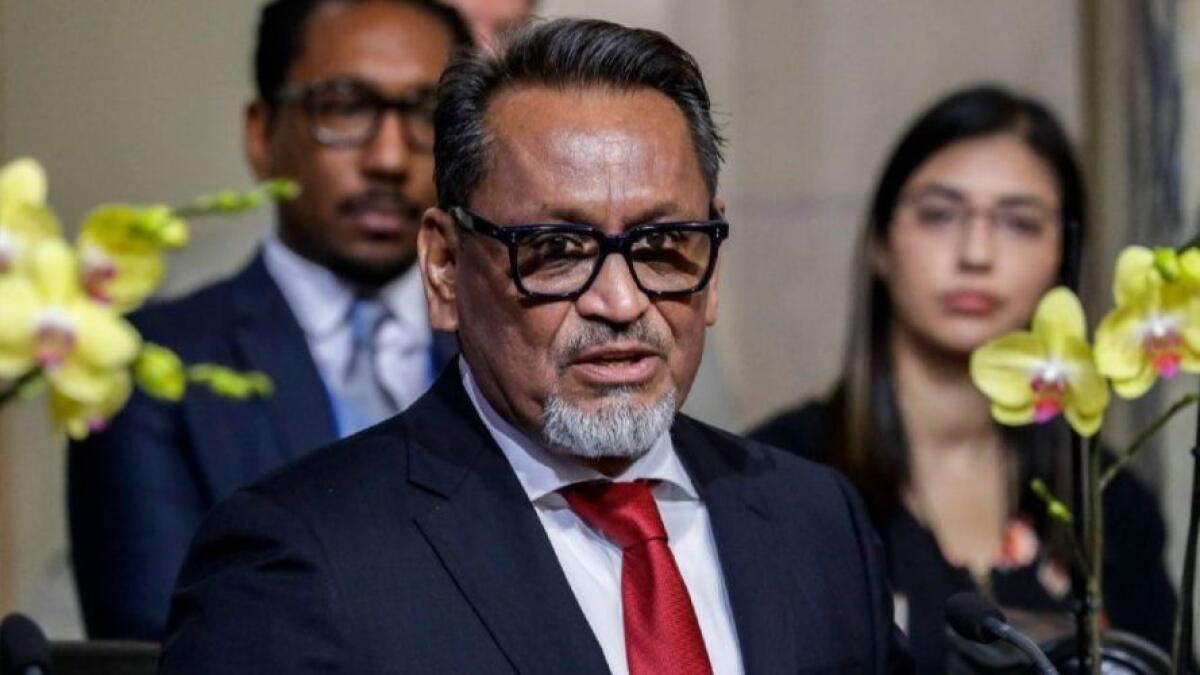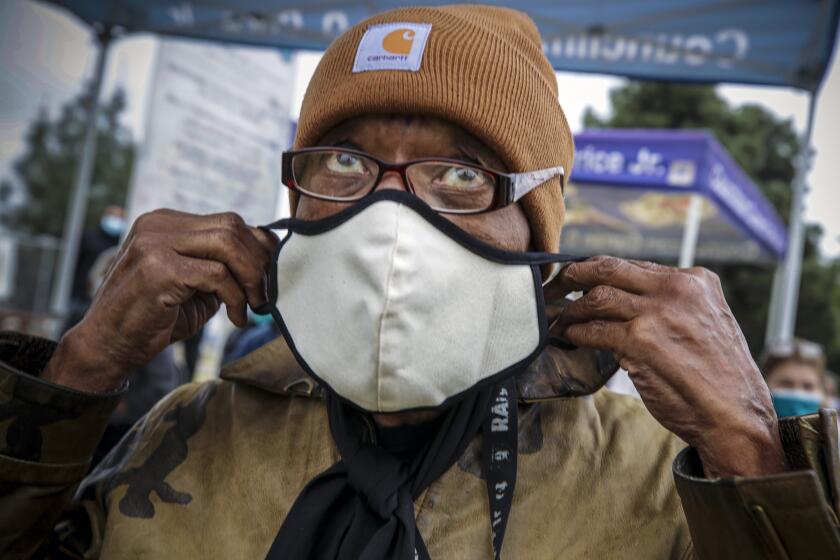Looking to avert evictions, L.A. seeks $46 million to buy Chinatown apartment building

The Los Angeles City Council moved forward on Wednesday with a plan to buy a 124-unit apartment building in Chinatown, instructing the city’s financial analysts to find the nearly $46 million they say would be needed to carry out the purchase.
The council voted 14 to 0 to start the process of acquiring Hillside Villa, where major rent increases have fueled fears that tenants could be pushed out once the coronavirus is under control and restrictions on evictions are lifted — or possibly sooner than that.
Councilman Gil Cedillo, whose district includes Chinatown, unveiled a plan in November to tap surplus federal COVID-19 relief funds for the purchase, saying the move would protect renters while also allowing the owner to “make out like a bandit.” But budget analysts quickly concluded the purchase would not be eligible for those funds, since Cedillo proposed the idea before L.A.’s coronavirus health emergency began.
At least six households inside Hillside Villa have received notices from the landlord informing them they have three days to provide rent that went unpaid in the months leading up to the COVID-19 outbreak, or else face eviction, according to Jacob Woocher, an organizer with the L.A. Tenants Union. Four of the six say they do not, in fact, owe that money, and have refused to comply, Woocher said.
On Wednesday, residents of Hillside Villa told the council that tenants are being targeted for harassment.
“We can’t afford rents. We’re going to be homeless, and we need you to help,” said Rosa Hernández, who has lived in the building for a decade.
Activists have been urging council members for more than a year to use eminent domain power to force the owner to sell, arguing that such a move would be cheaper than building affordable housing from the ground up.
Lawyers for the building’s owner, Thomas Botz, said their client takes good care of the property and has been patient with tenants who have fallen behind on rent. Botz, for his part, has said he has no interest in selling to the city, saying its estimate of the property’s value is “way inaccurate.”
Botz’s lawyers sent a request to the city in December for public records dealing with the city’s appraisal and the request to use COVID-19 funds. The city’s General Services Department, which handles property acquisition, initially responded by saying it would take eight months to assemble those documents.
Placing a cloth mask over a medical one or putting on a tightly fitted medical mask could reduce exposure, a CDC report finds. There are caveats.
The department later declined to release the records entirely, saying they are part of an ongoing negotiation process and exempt from release.
Cedillo, for his part, said he still thinks the city should tap coronavirus relief funds to pay for the purchase. Although the problems faced by Hillside Villa’s tenants began before COVID-19, the pandemic has had an impact on them, he said.
“We’ve had job loss. Sadly, we’ve lost some tenants. Today you heard the incredible but authentic stress that tenants are feeling in that building,” he told his colleagues.
Michael Leifer, one of Botz’s attorneys, said the city’s determination to purchase the building makes no sense as it grapples with a $750-million budget shortfall. A majority of Hillside Villa’s tenants already pay below-market rents, since they rely on Section 8 housing vouchers, he said.
“The city simply does not need to condemn the Hillside Villa Apartments to maintain affordable housing availability on this property,” Leifer wrote in a letter to council members last week.
The dispute between the city and Hillside Villa comes at a time of accelerating change for the surrounding neighborhood.
On the west side of Chinatown’s L Line light rail station, a developer is planning to build a 27-story residential tower. On the east side of the station, another developer received approval for construction of a 725-unit residential complex. Not far away, a third company has already started construction on a 318-unit apartment complex called Llewellyn.
Those developments have fueled fears of rising rents and displacement of established Chinatown residents, many of them low-income.
Hillside Villa was constructed in 1988 in partnership with the city, with the city providing around $5.5 million in redevelopment loans and the developers promising to maintain affordable rent prices for 30 years. After those rent restrictions expired, Botz began seeking major increases, in an attempt to move those prices to market rates.
Cedillo attempted to reach an agreement with Botz to cancel the property’s remaining city debt if rents were kept low for another decade. But the deal was never finalized, and the two sides are now at odds.
More to Read
Sign up for Essential California
The most important California stories and recommendations in your inbox every morning.
You may occasionally receive promotional content from the Los Angeles Times.












